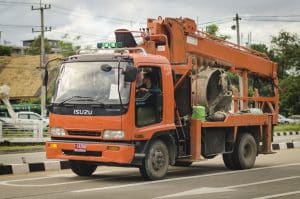Autonomous Vehicle Litigation: Driverless Accident Law
The rise of autonomous vehicles, also known as driverless cars, has sparked a new conversation in the legal world surrounding driverless accident law. As technology continues to advance and self-driving cars become more prevalent on the roads, it is crucial for both drivers and legislators to understand the complexities of this emerging field. In this article, we will dive into the world of autonomous vehicle litigation and explore the laws and challenges surrounding driverless accidents.
The Legal Landscape of Autonomous Vehicles
Autonomous vehicles operate by using a combination of sensors, cameras, and algorithms to navigate the roads without human intervention. While this technology has the potential to make our roads safer and more efficient, it also raises questions in terms of legal responsibility in the event of an accident.
Current Laws and Regulations
Currently, most countries do not have specific laws or regulations in place for autonomous vehicles. Instead, they rely on existing traffic laws and regulations. However, as more and more driverless cars hit the roads, legislators are starting to address the need for specific laws and regulations.
In the United States, there are currently no federal laws pertaining to autonomous vehicles. Instead, states have taken the lead in regulating driverless cars. For example, California requires autonomous vehicle manufacturers to obtain a special permit and have a licensed driver behind the wheel in case of emergencies. Some states have also implemented specific insurance requirements for autonomous vehicles.
In addition to legislation, there have also been efforts to create industry-wide standards for autonomous vehicles. The Society of Automotive Engineers (SAE) has developed a six-level classification system for autonomous vehicles, ranging from Level 0 (no automation) to Level 5 (full automation).
The Difficulties of Determining Liability
One of the biggest challenges when it comes to autonomous vehicle litigation is determining liability in the event of an accident. In traditional car accidents, liability is typically assigned to the driver who was at fault. However, with autonomous vehicles, the lines of responsibility become blurred.
Some may argue that the manufacturer should be held liable for accidents caused by a malfunctioning autonomous system. Others may argue that the driver, even if they were not actively “driving” the car, should still be responsible. This lack of clarity can lead to lengthy legal battles and make it difficult for accident victims to receive proper compensation.
Notable Autonomous Vehicle Lawsuits
The first known fatality involving an autonomous vehicle occurred in 2018 when a pedestrian was struck and killed by a self-driving Uber in Arizona. In this case, Uber was held not criminally liable, but a settlement was reached with the victim’s family.
In another notable case, a California resident filed a class action lawsuit against Tesla, claiming that the company’s Autopilot system was defective and caused his car to crash into a parked vehicle. This case was ultimately dismissed by the court, but it highlights the potential legal issues surrounding autonomous vehicles.
The Future of Autonomous Vehicle Litigation
As technology and legislation continue to evolve, so will the landscape of autonomous vehicle litigation. It is likely that we will see more lawsuits involving driverless cars in the future, and it will be up to the legal system to adapt and keep up with the fast-paced advancements in this field.
In addition to determining liability in accidents, there may also be legal challenges surrounding data privacy and security when it comes to autonomous vehicles. These vehicles collect a vast amount of data, including personal information, which could potentially be at risk.
The Importance of Staying Updated on Autonomous Vehicle Laws
For individuals, understanding the laws and regulations surrounding autonomous vehicles is essential in order to protect themselves and their rights in the event of an accident. For manufacturers, staying informed and compliant with regulations is crucial to avoid potential legal issues and negative publicity.
As autonomous vehicles become more mainstream, we can expect to see more regulations and legal battles surrounding driverless accidents. It is important for both individuals and companies to stay informed and aware of the changing landscape of autonomous vehicle litigation.
In Conclusion
The potential benefits of autonomous vehicles are undeniable, but as with any emerging technology, there are legal implications that need to be addressed. From determining liability in accidents to protecting data privacy, autonomous vehicle litigation will continue to be a complex and evolving field. By staying informed and keeping up with the latest laws and regulations, we can work towards a safer and more efficient world of driverless cars.








